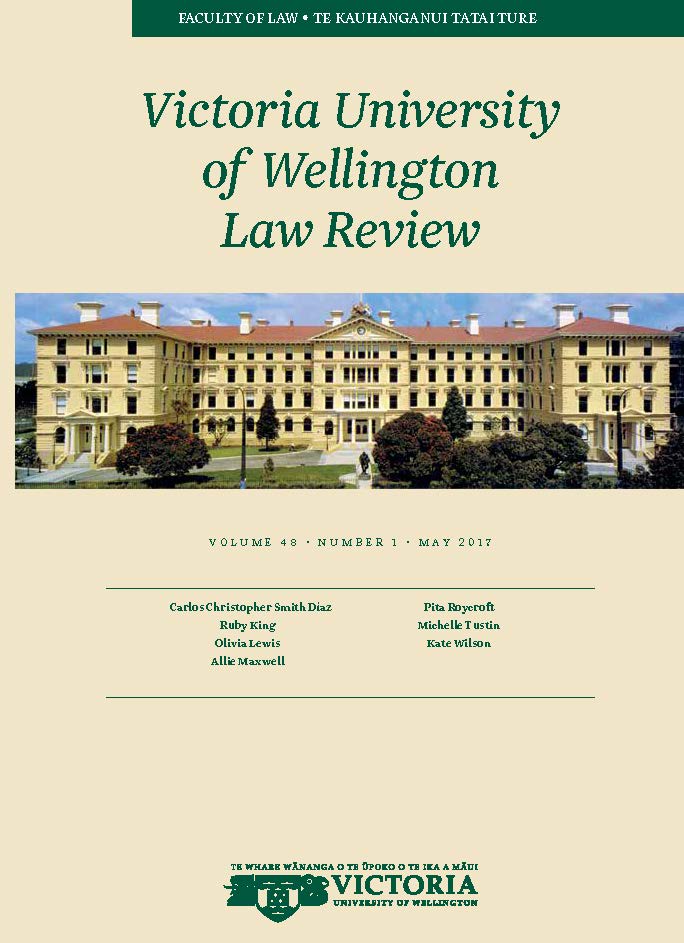Legal Interventions to Meaningfully Increase Housing Supply in New Zealand
DOI:
https://doi.org/10.26686/vuwlr.v48i1.4765Abstract
This article considers legal interventions to facilitate an affordable housing market in New Zealand. In particular, it focuses on meaningfully increasing supply and facilitating intensification and options in growing cities. It analyses the measures currently proposed by central government, including deregulation and reforms to the Resource Management Act 1991 and assesses whether these measures can achieve density and increased options and housing choices. It proposes measures such as making full use of the RMA's effects-based model, releasing National Policy Statements and carefully drafting cohesive and strategic City Plans which focus on outcomes and quality. These measures should be supported by a range of incentives, disincentives, regulations and supplementary measures to ensure the implementation of transformative town plans.
A plethora of interconnected issues have contributed to the current housing problem; economic issues like demand and social issues like immigration and NIMBY-ism (Not in my backyard). While this article focuses on meaningfully increasing supply, it acknowledges that legal interventions and supply increases are not a silver bullet solution. A smorgasbord of legal reforms as well as economic and social changes must occur to truly address affordability challenges.
Downloads
Downloads
Published
How to Cite
Issue
Section
License
Authors retain copyright in their work published in the Victoria University of Wellington Law Review.


